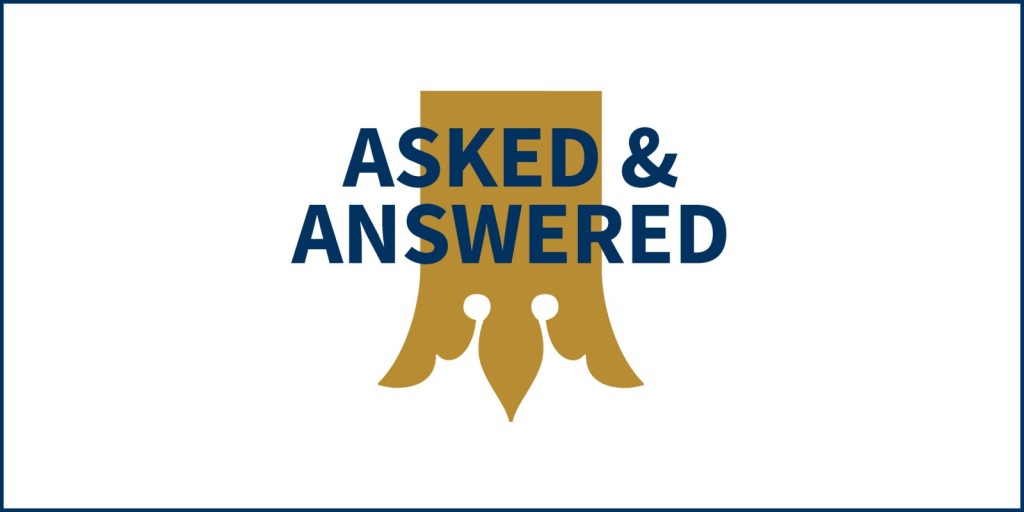You have free articles remaining this month.
Subscribe to the RP Witness for full access to new articles and the complete archives.
I live in a big city with a lot of panhandlers on street corners. They always have signs saying they’re hungry. Since I suspect that if I give them money they will use it to buy alcohol or drugs, I don’t give anything. But Jesus says, “Give to him that asketh thee” (Matt. 5:42), and Proverbs says, “Give strong drink unto him that is ready to perish” (31:6). Should I just give them some change and not worry what they do with it?
––––––––––––––––––––––––––––
We who have been shown mercy by the Lord are called to show mercy to others in need. How do we best show such mercy? Proverbs 31, referenced in your question, gives great wisdom to those called to show mercy. Derek Kidner comments that Proverbs 31:6 is written to a king as “a cutting reminder that an administrator has better things to do than anesthetize himself.” Proverbs serves the purpose of raising up a whole nation of regal-minded citizens who would serve with their king; this verse speaks to the one with resources as of first importance. So we may not just give beggars some change and not worry what they do with it. To do so would be to anesthetize our consciences and abdicate our responsibilities.
The Scriptures instruct us repeatedly to care and provide for the poor (Lev. 19:9–10; Deut. 15:7; Isa. 58:6–10; Luke 12:33; 1 Tim. 6:18). More than that, Jesus impoverished Himself so that we might gain eternal wealth (2 Cor. 8:9). So, God calls us to serve the poor with compassion (Mic. 6:8). The Lord has appointed various structures, especially the diaconate, to guide our ministry to those in material need (Acts 6:1–7).
So, what do we do with the beggar on the street? In Matthew 5:42, Jesus tells us to “give to the one who begs from you,” but he does not tell us specifically what to give. Just as we do not always give our children exactly what they request, so we must be wise administrators of other requests. There are times for us to become individually involved in such a request, but we need to be prepared to invest significant time if we are called to discern the real need and meet it. Often the real need is not a few dollars. Working with the deacons of the church is an excellent way to grow in such discernment.
Panhandlers, by their very presence, indicate the prosperity of a city. The difficulty with panhandlers, as your question notes, is discerning why they need money. For some the need is genuine. On the other end of the spectrum, some honestly acknowledge the need is not genuine. Consider the guy who sits outside a stadium in front of passing fans who are on their way to watch a game and drink a beer. Appealing to the common interest of the crowd, he holds his tin can with a sign saying, “Let’s be honest; I just need a beer.”
The good news amid such varied scenarios is that prosperous cities in North America usually have cooperative efforts of Christians committed to meeting the needs of the poor. Rather than giving directly to panhandlers, it is usually far better to work with others in the body of Christ who are already giving wisely to serve the poor.
Good rescue missions and food pantries are often best equipped to help us serve those in poverty effectively without being constantly duped by the professionally poor. Deacons of local churches sometimes find ways to work with and support such mercy ministries. We can steward our resources well by giving to these organizations and participating personally with these ministries. As we grow in wisdom and capacity, we are more able to fulfill Jesus’ injunction to “give to the one who begs from you.” If we are proactively supporting and engaged with ministries doing effective mercy ministry, then we are also more able to point panhandlers to centers where they can receive help. To be clear, it is not enough for you to simply know that someone else is doing the work; the call of Scripture is for us to be sacrificially involved.
In addition to engaging with local efforts, believers can glean principles of wisdom from those who have published on these subjects. For instance, many people have found When Helping Hurts by Steve Corbett and Brian Fikkert (Moody Press) to be a useful guide to thinking about effective mercy ministry.
In Proverbs 31:6–7, the king’s son is reminded not to anesthetize himself like the poor people whom he encounters. The reminder is specifically given to him so that he can open his mouth “for the rights of all who are destitute” and “defend the rights of the poor and needy” (Prov. 31:8–9). When we see panhandlers, we are to be reminded of our high calling, to engage our hearts, and to find the wisest ways to fulfill our calling to support the destitute, the poor, and the needy. Usually, fulfilling that God-given calling will involve not giving them some change. Instead, it will likely involve becoming more concerned for the poor of your community through personal, intentional, and concrete involvement with reputable, existing ministries.
James Faris and Noah Bailey | column editors
––––––––––––––––––––––––––––
Have a question on your heart that you’d like to see answered here? Send it to info@rpwitness.org.
